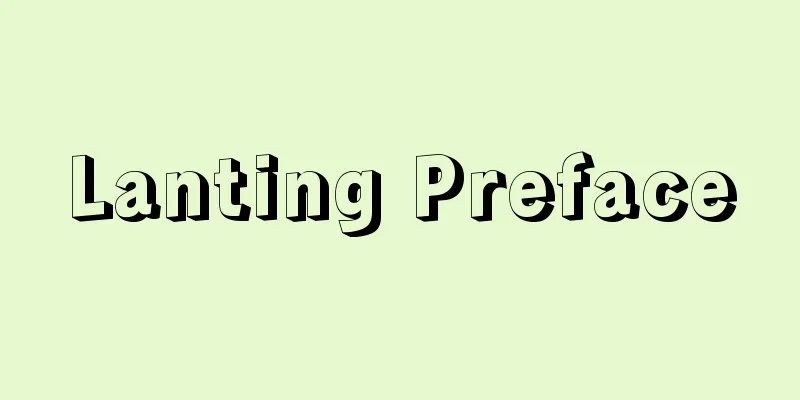Annales School

|
The Annales School (French: L'école des Annales) is not so much a "school" as it is a "movement" of a diverse group of researchers who came together in pursuit of a new science of history through the journal Annales. The name comes from the Annales d'histoire économique et sociale (Annual Reports on Social and Economic History) (1929-1938), which was founded in Strasbourg in 1929 by Lucien Febvre and Marc Bloch. The name of the journal changed to Annales d'histoire sociale (Annuals of Social History) (1939-1941, 1945), Mélanges d'histoire sociale (Essays on Social History) (1942-1944), and then to Annales. Économies, Sociétés, Civilisations (Annals: Economy, Society, Civilisations) in 1946, and finally to Annales (Histoire, Sciences sociales) (Annals: History, Social Sciences). The origins of the Annales school go back to the 19th century historian Michelet and the 18th century Enlightenment philosopher Voltaire, but it was born directly from the criticism of positivist historiography from the mid-19th century to the early 20th century. Its spirit is that of "living history," which seeks to revive all people who lived in the past by always viewing all phenomena in a holistic context and by always viewing the past in dialogue with the present. This spirit was inherited by Braudel, Aries, Pierre Goubert (1915-2012), Georges Duby (1919-1996), Robert Mandrou (1921-1984), and others. After Febvre's death, Braudel took over as editor-in-chief of Annales, and in the 1960s, inspired by adjacent sciences such as Lévi-Strauss, Foucault, and Bourdieu, a younger generation of historians emerged, including Pierre Chaunu (1923-2009), Jean Delumeau (1923-2020), Jacques Le Goff (1924-2014), Marc Ferro (1924-2021), Maurice Agulhon (1926-2014), Emmanuel Le Roy Ladurie (1929- ), and Michel Vovelle (1933-2018). The Annales School goes beyond the traditional field of history to study mentality (English: mentality, way of thinking, mental structure) from various perspectives such as climate, death, medicine, illness, fear, children, family, sexuality, fatherhood, women, witches, marginality, madness, dreams, smells, books, folk culture, and festivals, and also studies sociabilité, which interprets various aspects of the diverse human networks (corporations) of local communities that exist between the state and individuals before the establishment of modern nation-state consciousness, or even after it. The research that emerged from the diverse members of the Annales School is truly profusion, and it is impossible to characterize it in a single word, but it is certain that they have worked to thoroughly question modern Western society in order to overcome the various crises of the modern era. [Kiyohiro Yoneda January 21, 2019] "New History: The Path to Historical Anthropology" by Le Roy Ladurie, translated by Kabayama Koichi et al. (1980, Shinhyoron)" ▽ "Historians and the Overall Eye" by Ninomiya Hiroyuki (1986, Mokkusha)" ▽ "The Annales School and Social History: Toward a New History" by Takeoka Yoshiaki (1990, Dobunkan Publishing)" ▽ "Braudel and the World of Braudel: For the Study of Annales School History" by F. Braudel, J.H. Hexter, and H.R. Trevor-Roper, translated and edited by Akai Akira, Takahashi Masao, and Furukawa Kenji (1991, Tosui Shobo)" ▽ "The Historian's Studio" by G. Dubie and Guy Larderot, translated by Abe Kazutomo (1991, Shinhyoron)" ▽ "The Mediterranean, by F. Braudel, translated by Hamana Yumi, 5 volumes (1991-1995, Fujiwara Shoten)" ▽ "The French Historiographical Revolution: The Annales School 1929-89, by P. Burke, translated by Otsu Shinsaku (1992, Iwanami Shoten)" ▽ "History, Culture and Representation: The Annales School and Historical Anthropology, by Jacques Rugoff et al., edited and translated by Ninomiya Hiroyuki (1992, Iwanami Shoten)" ▽ "Feudal Society, by Marc Bloch, supervised translation by Horimai Yozo (1995, Iwanami Shoten)" ▽ "The Present of New History: New Perspectives on Historical Narratives, edited by Peter Burke, translated by Tanigawa Minoru et al . (1996, Jinbun Shoin)" ▽ "What is the 'New History'?: What We Can Learn from the Annales School, by Fukui Norihiko (Kodansha Academic Library)" [References] | | | | | | | | | | | |Source: Shogakukan Encyclopedia Nipponica About Encyclopedia Nipponica Information | Legend |
|
アナール学派L'école des Annales(フランス語)は、「学派」というよりはむしろ、『アナール』誌を舞台に新しい歴史学を求めて集まった多種多彩な研究者仲間からなる「運動」というべきである。この呼称は、リュシアン・フェーブルとマルク・ブロックが1929年にストラスブールで創刊した『社会経済史年報』Annales d'histoire économique et sociale(1929~1938)に由来する。誌名は『社会史年報』Annales d'histoire sociale(1939~1941、1945)、『社会史論叢』Mélanges d'histoire sociale(1942~1944)と変わったが、1946年からは『アナール:経済、社会、文明』Annales. Économies, Sociétés, Civilisations、さらに『アナール(歴史、社会科学)』Annales(Histoire, Sciences sociales)と改称されて現在にいたっている。アナール学派の源流は19世紀の歴史家ミシュレ、さらには18世紀の啓蒙(けいもう)哲学者ボルテールにさかのぼるが、直接的には19世紀なかばから20世紀初めの実証主義歴史学に対する批判から生まれた。その精神は「生きた歴史学」であり、すべての事象をつねに全体的な連関のうちにとらえること、過去をつねに現在との対話のうちにとらえることによって、過去に生きた人間全体をよみがえらせようとすることである。この精神は、ブローデル、アリエス、グベールPierre Goubert(1915―2012)、デュビーGeorges Duby(1919―1996)、マンドルーRobert Mandrou(1921―1984)らによって受け継がれた。フェーブルの死後ブローデルが『アナール』の編集長を引き継いでから、1960年代にはレビ・ストロースやフーコー、ブルデューなど隣接諸科学からの刺激も受けて、ショーニュPierre Chaunu(1923―2009)、ドリュモーJean Delumeau(1923―2020)、ル・ゴフJacques Le Goff(1924―2014)、フェローMarc Ferro(1924―2021)、アギュロンMaurice Agulhon(1926―2014)、ラデュリーEmmanuel Le Roy Ladurie(1929― )、ボベルMichel Vovelle(1933―2018)ら若い世代の歴史家が出現した。アナール学派は、従来の歴史学の領域を超えて、気候、死、医学、病気、恐れ、子供、家族、性愛、父性、女性、魔女、周縁性、狂気、夢、におい、書物、民衆文化、祭りなどさまざまな視点からマンタリテmentalité(英語のメンタリティ、物の考え方、精神構造)の研究をすすめるとともに、近代の国民国家意識が成立する以前、あるいはそれ以後も存続する国家と個人の間に介在する地域社会の多様な人的ネットワーク(corporations=社団)の諸相を読みとるソシャビリテsociabilité研究をも手がけている。アナール学派の多彩な顔ぶれから生まれた研究はまさに百花繚乱(りょうらん)であって、それをひとことで特徴づけることは不可能であるが、彼らが現代のさまざまな危機を打開するために西欧近代社会を徹底的に問い直す作業をしてきたことだけは確かである。 [米田潔弘 2019年1月21日] 『ル・ロワ・ラデュリ著、樺山紘一他訳『新しい歴史――歴史人類学への道』(1980・新評論)』▽『二宮宏之著『全体を見る眼と歴史家たち』(1986・木鐸社)』▽『竹岡敬温著『「アナール」学派と社会史――「新しい歴史」へ向かって』(1990・同文館出版)』▽『F・ブローデル、J・H・ヘクスター、H・R・トレヴァー・ローパー著、赤井彰・高橋正男・古川堅治編訳『ブローデルとブローデルの世界――「アナール派」史学研究のために』(1991・刀水書房)』▽『G・デュビー、ギー・ラルドロー著、阿部一智訳『歴史家のアトリエ』(1991・新評論)』▽『F・ブローデル著、浜名優美訳『地中海』全5巻(1991~1995・藤原書店)』▽『P・バーク著、大津真作訳『フランス歴史学革命――アナール学派1929―89』(1992・岩波書店)』▽『ジャック・ルゴフ他著、二宮宏之編訳『歴史・文化・表象――アナール派と歴史人類学』(1992・岩波書店)』▽『マルク・ブロック著、堀米庸三監訳『封建社会』(1995・岩波書店)』▽『ピーター・バーク編、谷川稔他訳『ニュー・ヒストリーの現在――歴史叙述の新しい展望』(1996・人文書院)』▽『福井憲彦著『「新しい歴史学」とは何か――アナール派から学ぶもの』(講談社学術文庫)』 [参照項目] | | | | | | | | | | | |出典 小学館 日本大百科全書(ニッポニカ)日本大百科全書(ニッポニカ)について 情報 | 凡例 |
<<: Analog circuit - Analogue circuit
>>: Anayama Plum Snow - Anayama Plum Snow
Recommend
Palestine
The area refers to the area between Syria and Egyp...
Artha
…But Indians have not turned their backs on reali...
Reshteh-ye Alborz (English spelling)
…The mountain range that runs east to west along ...
Second Empire
The French Empire lasted for about 20 years from ...
Gear ratio - Giyahi
⇒Gear ratio Source: About Shogakukan Digital Daiji...
Kokawa [town] - Kokawa
Kinokawa is an old town in the Naka district in no...
Makeup
〘noun〙 (makeup)⸨make-up・make-up⸩① (━suru) Make-up....
Indirect reduction
…For this reason, smelting and reduction are some...
Ekman, FL (English spelling) EkmanFL
…Swedish physical oceanographer. Born in Stockhol...
Gila monster - American gila monster
Please see the "Gila monster" page. Sou...
Momokawa Jibei - Momokawa Jibei
Year of death: Kan'ei 15? (1638) Year of birth...
Standard remuneration system/total remuneration system - hyojunhoshuusei sohoshuusei
The insurance premiums for social insurance that a...
Martorell, B.
…The Gothic style was introduced in the 14th cent...
Akatateha (English spelling) Indian red admiral
This butterfly belongs to the order Lepidoptera, ...
Impetus
…In this case, force is the cause of motion. Even...









